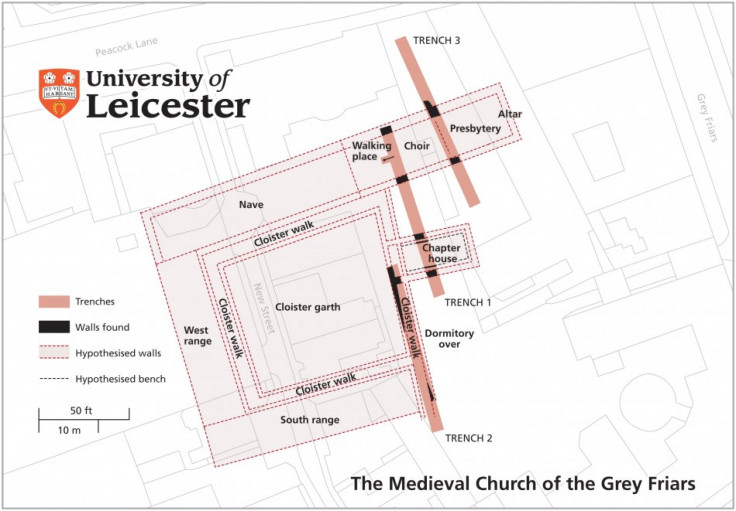King Richard III Skeleton Possibly Found: Why Monarch's Searchers Are Hopeful [VIDEO]

Has the skeleton of King Richard III finally been found? After more than 500 years, the English monarch's remains may have been discovered by archeologists digging underneath a parking lot in Leicester.
The University of Leicester announced Wednesday that the skeletal remains will undergo tests in the next step to determine whether they do in fact belong to King Richard III, who ruled England from 1483 until 1585, when he died in the Battle of Bosworth Field.
"This is an historic and perhaps defining moment in the story of Leicester and I am proud that the University of Leicester has played a pivotal role in the telling of that story," said Richard Buckley, the University of Leicester archaeologist, who led the search for King Richard III's body. "From the outset, the search for Richard III was a thrilling prospect but it has involved many hours of dedicated research by our team that has led to the astonishing finds we have disclosed."
It may take up to 12 weeks to determine whether the skeleton is that of King Richard III, with the university's Jo Appleby examining the remains and Turi King conducting a laboratory analysis on the remains, the institution said.
King said the team searching for King Richard III's body is "hopeful that we will recover DNA from the skeleton."
There are reasons to believe that the discovery may in fact be King Richard III's body. The university said the remains appear to be male. They were discovered in what it believes to be the choir of the Church of the Grey Friars -- the monarch's burial place.
In addition, the back of the skull "appears to have suffered a significant injury consistent with a blow from a bladed implement" and "a barbed arrowhead was found between vertebrae on the upper back."
King Richard III suffered from such injuries when he died in the Battle of Bosworth Field.
The University of Leicester stressed that it is premature to say that its archeologists found King Richard III's body.
"The University has always been clear that any remains would need to be subjected to rigorous laboratory and DNA analysis before we confirm the outcome of the search for Richard III. We are not saying [Wednesday that we have found King Richard III," the university said in a statement. "What we are saying is that the Search for Richard III has entered a new phase. Our focus is shifting from the archaeological excavation to laboratory analysis. This skeleton certainly has characteristics that warrant extensive further detailed examination."
The institution continued, "Clearly we are all very excited by these latest discoveries. We have said finding Richard was a long-shot. However it is a testament to the skill of the archaeological team led by Richard Buckley that such extensive progress has been made. We have all been witness to a powerful and historic story unfolding before our eyes. It is proper that the University now subjects the findings to rigorous analysis so that the strong circumstantial evidence that has presented itself can be properly understood."
Check out the video below to learn more about the search for King Richard III.
© Copyright IBTimes 2024. All rights reserved.












